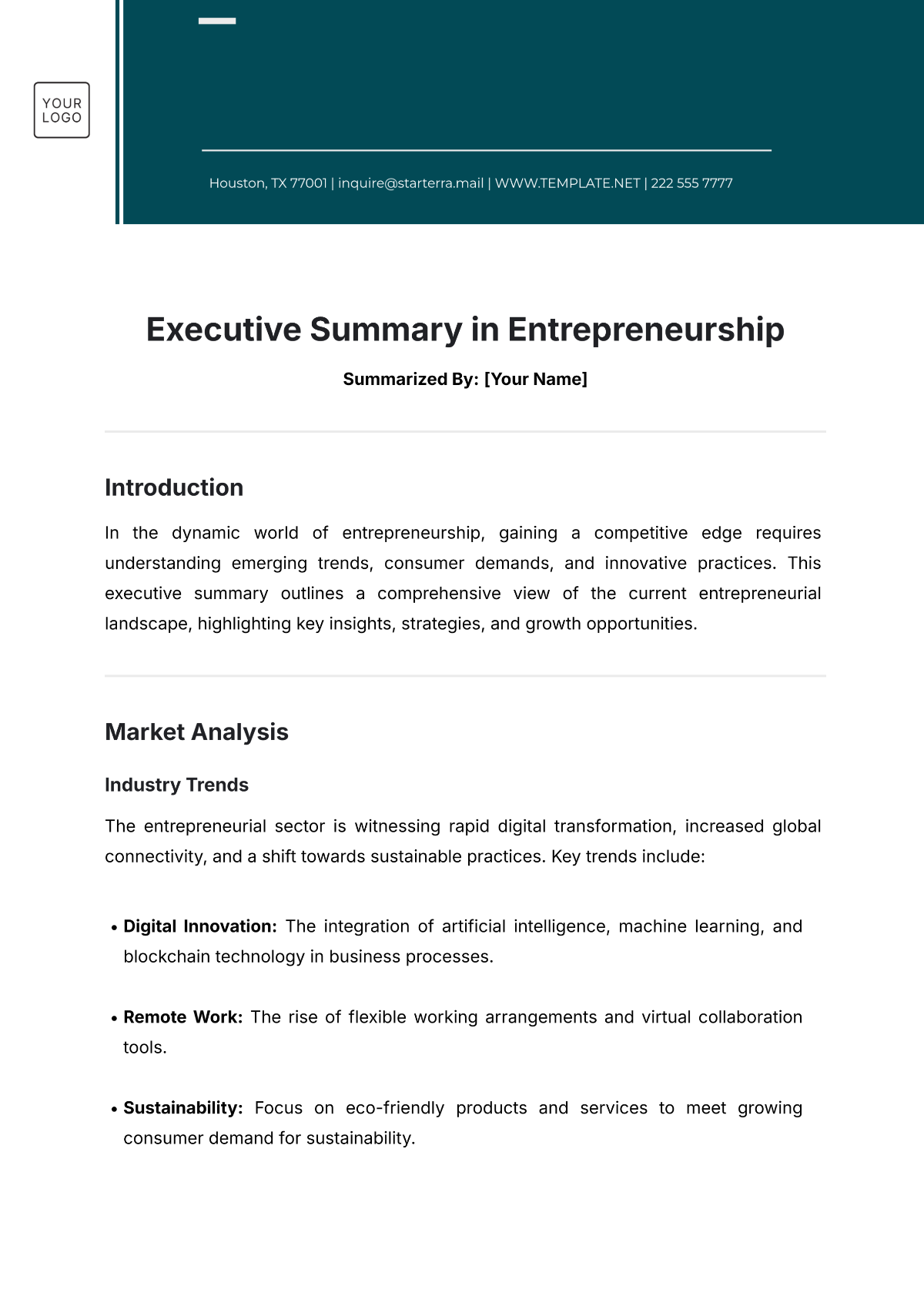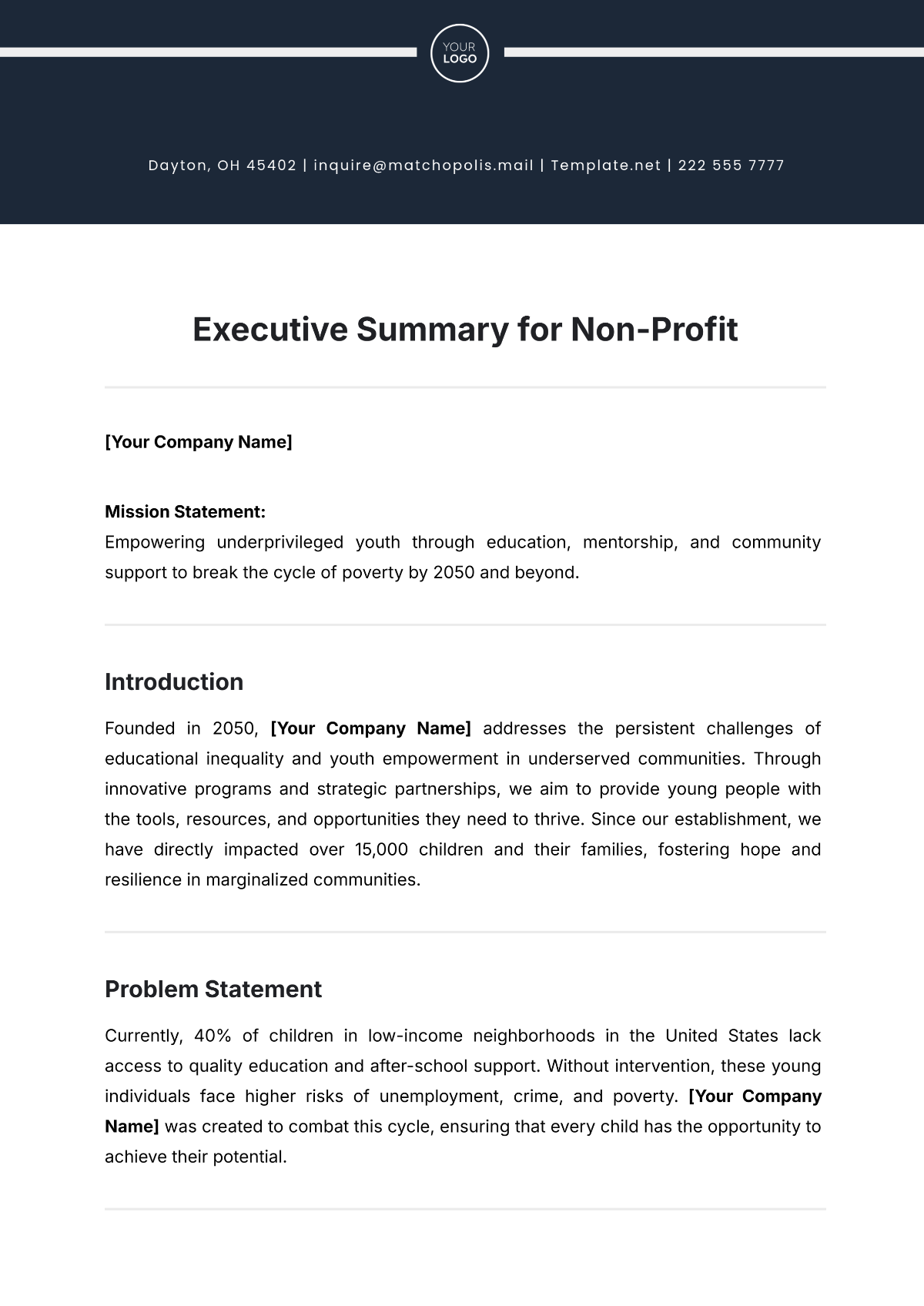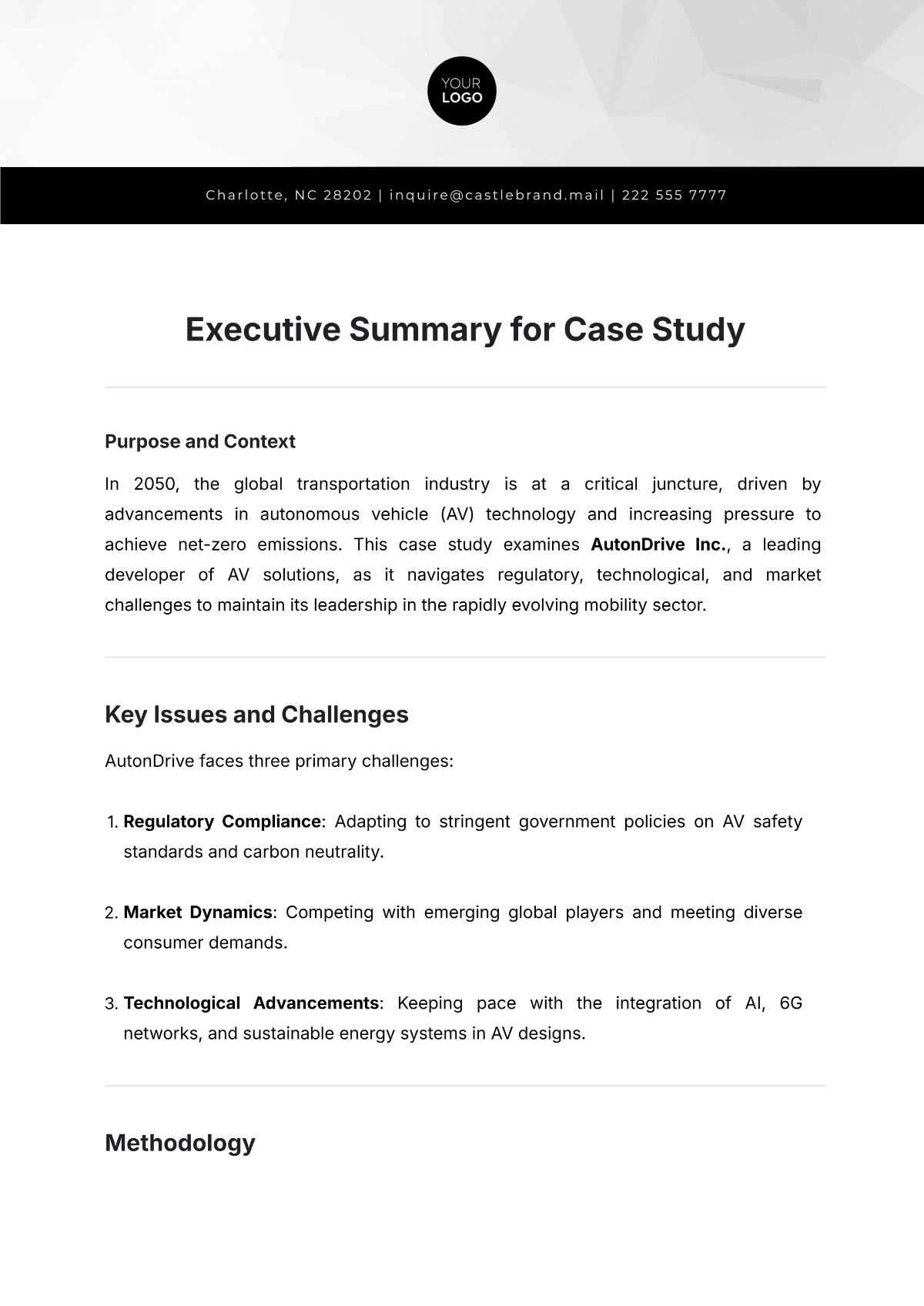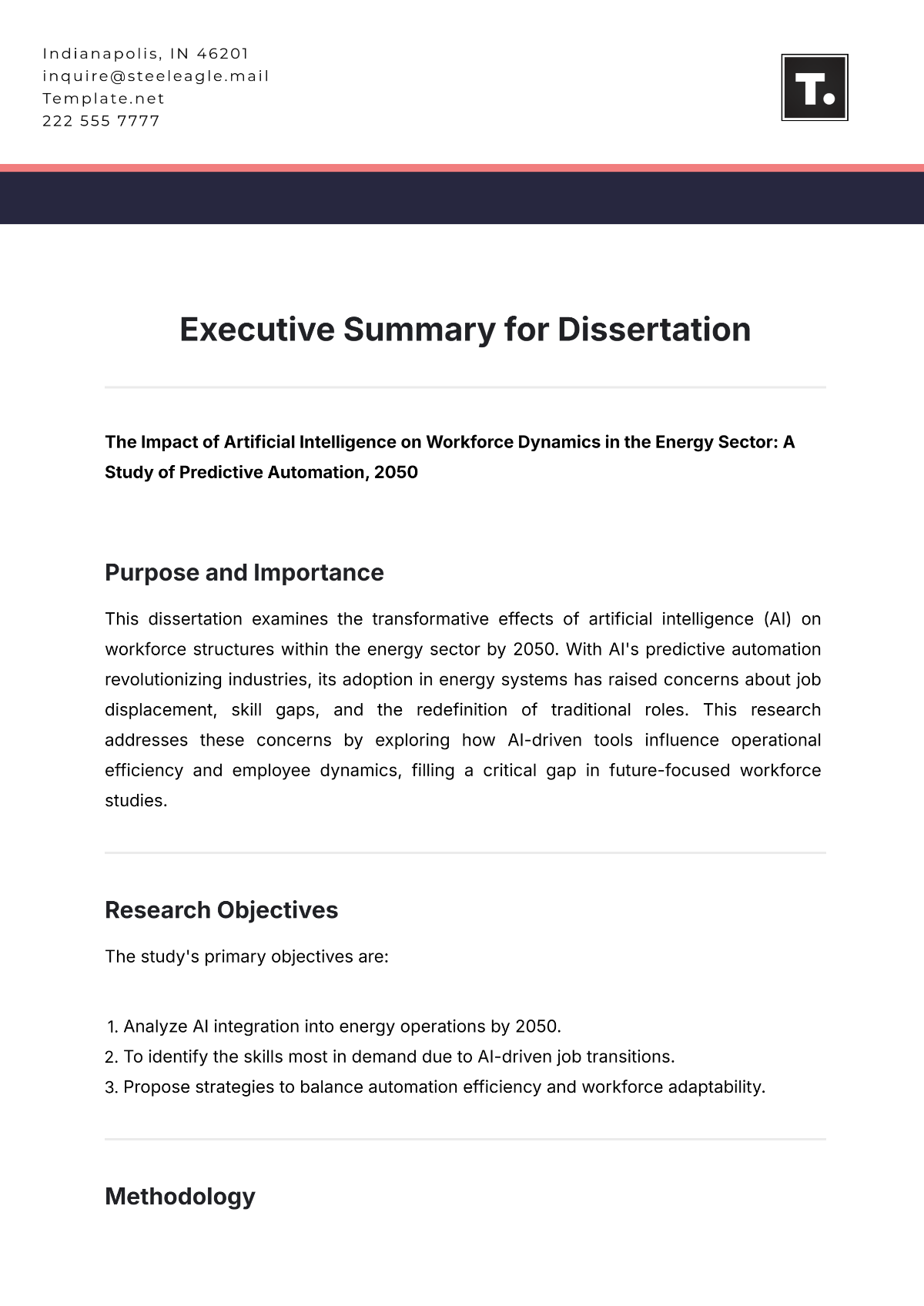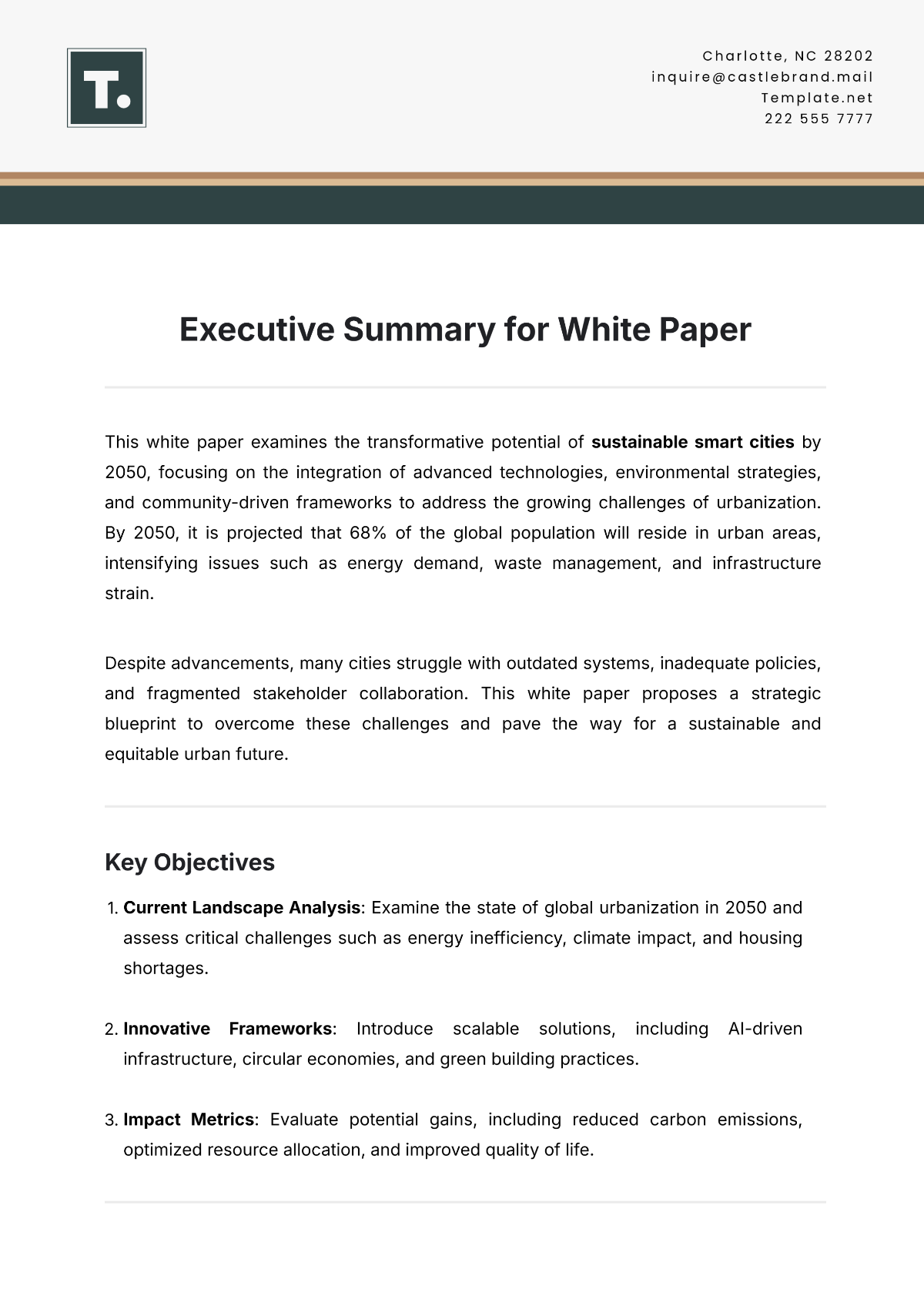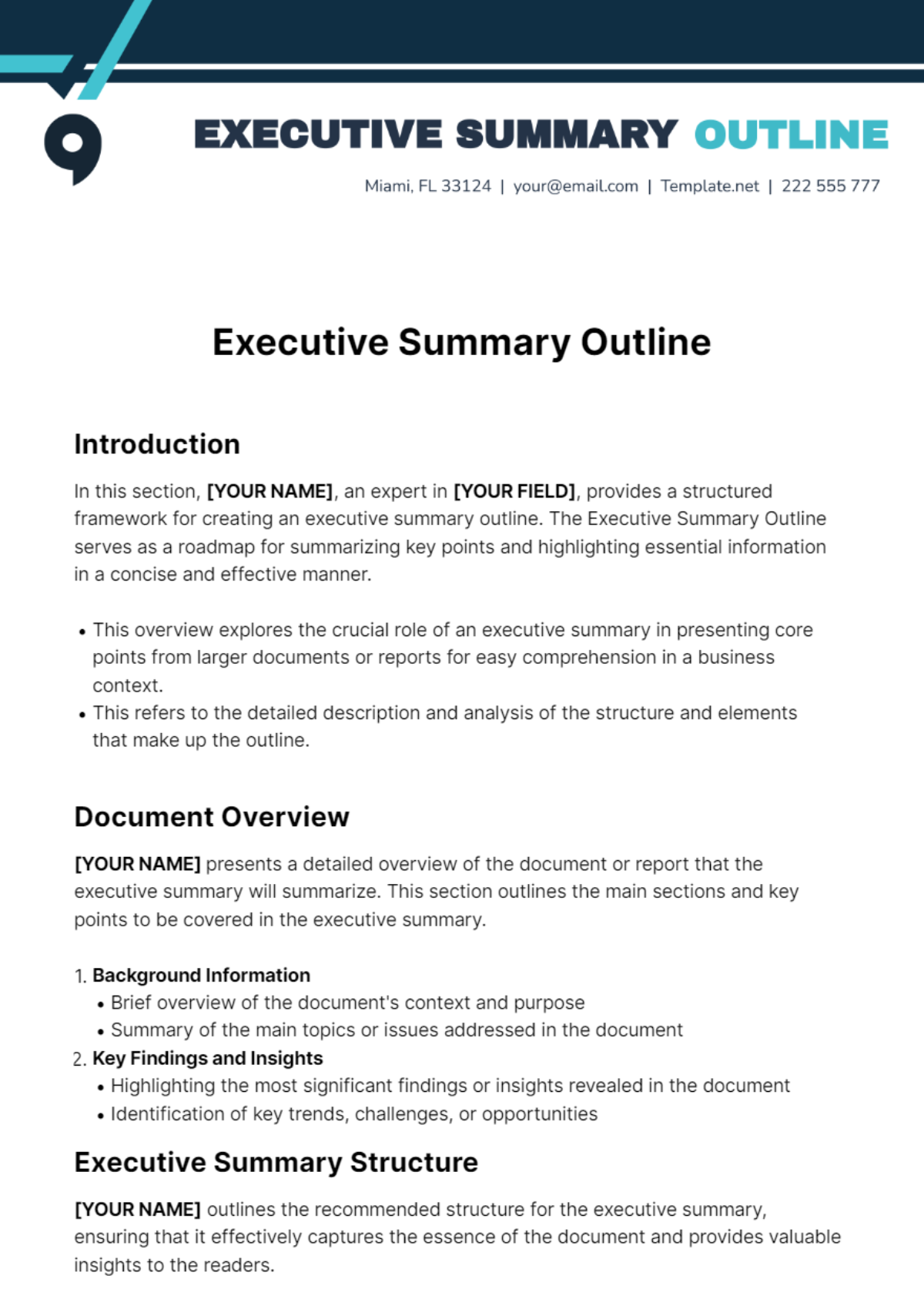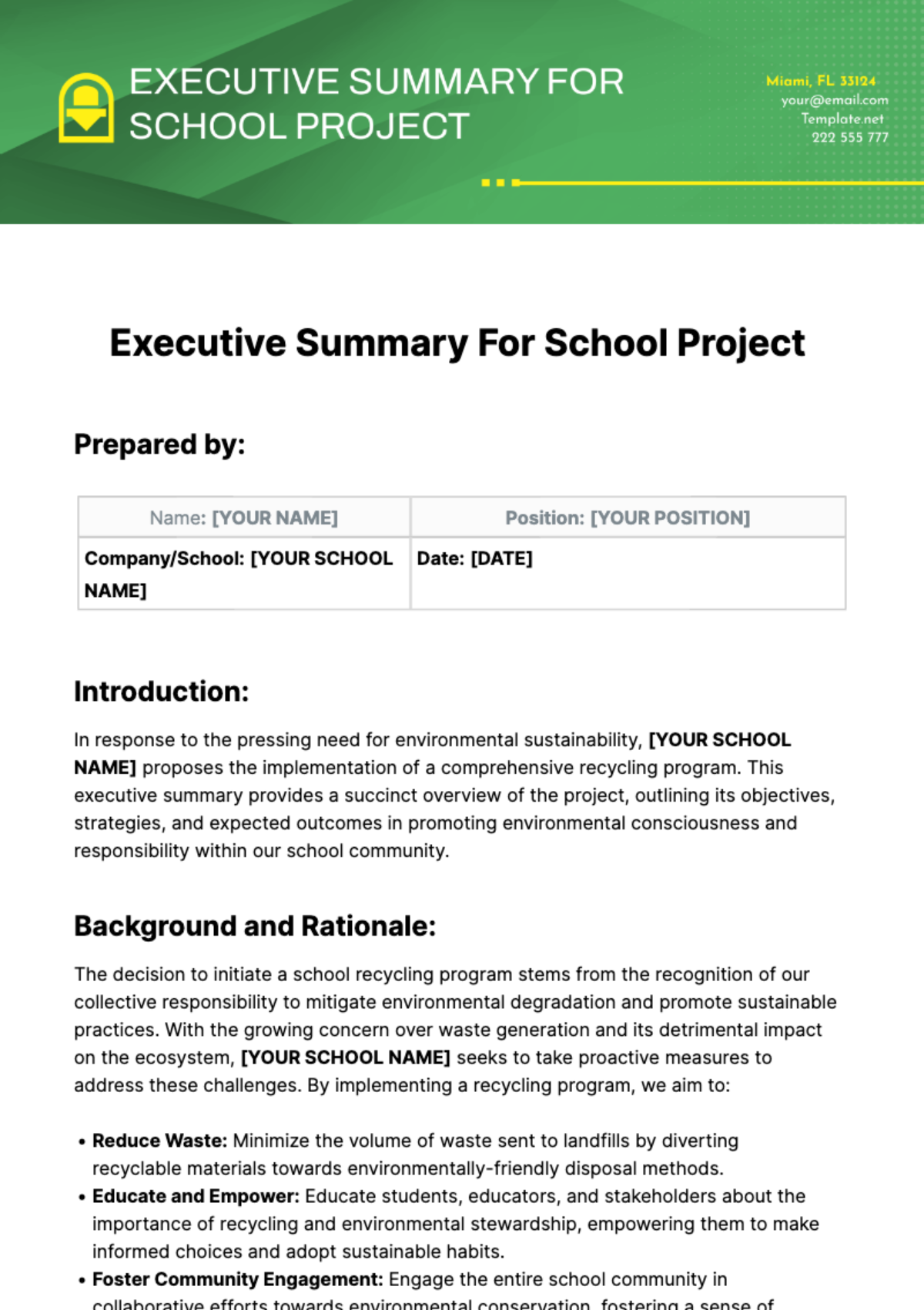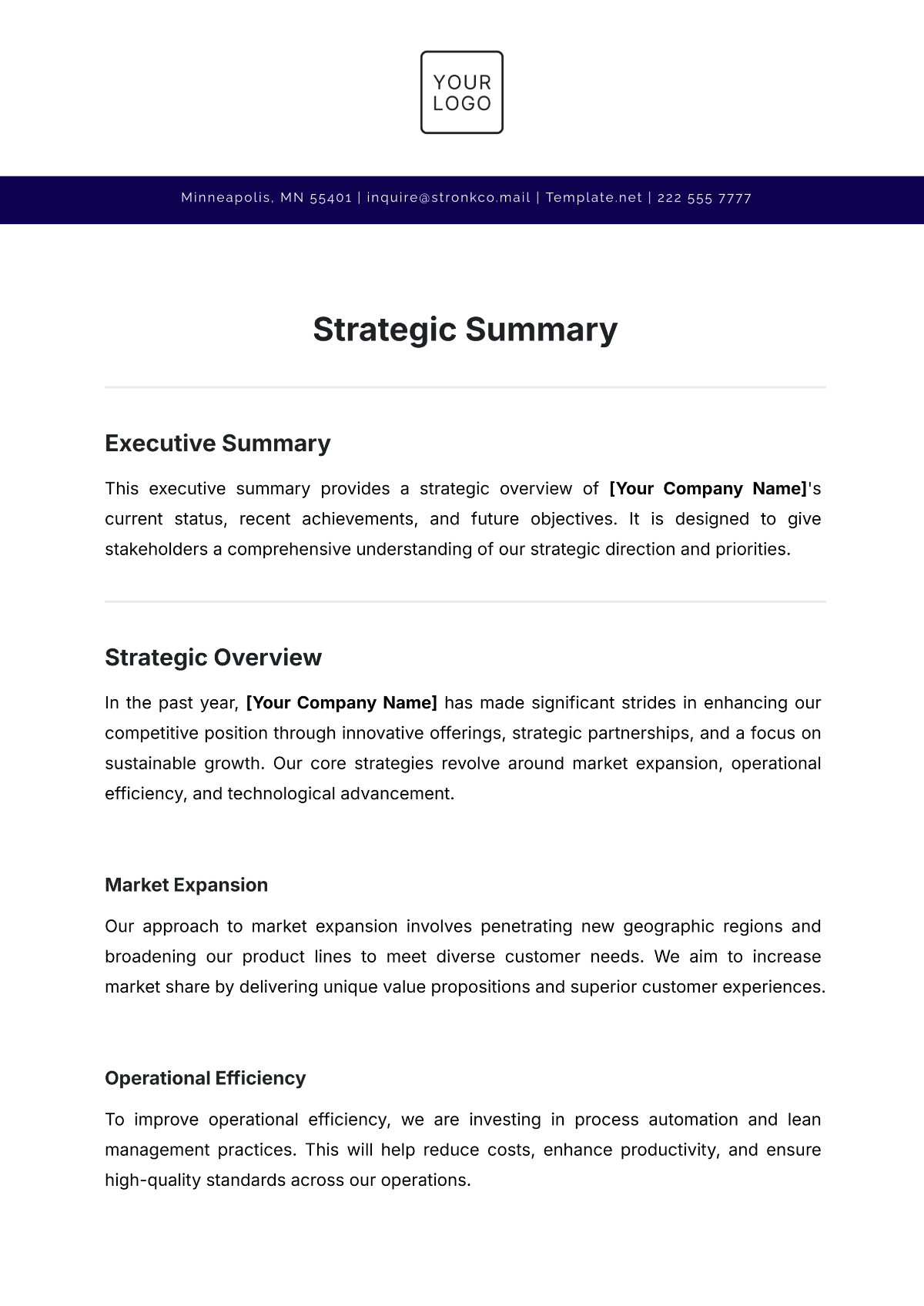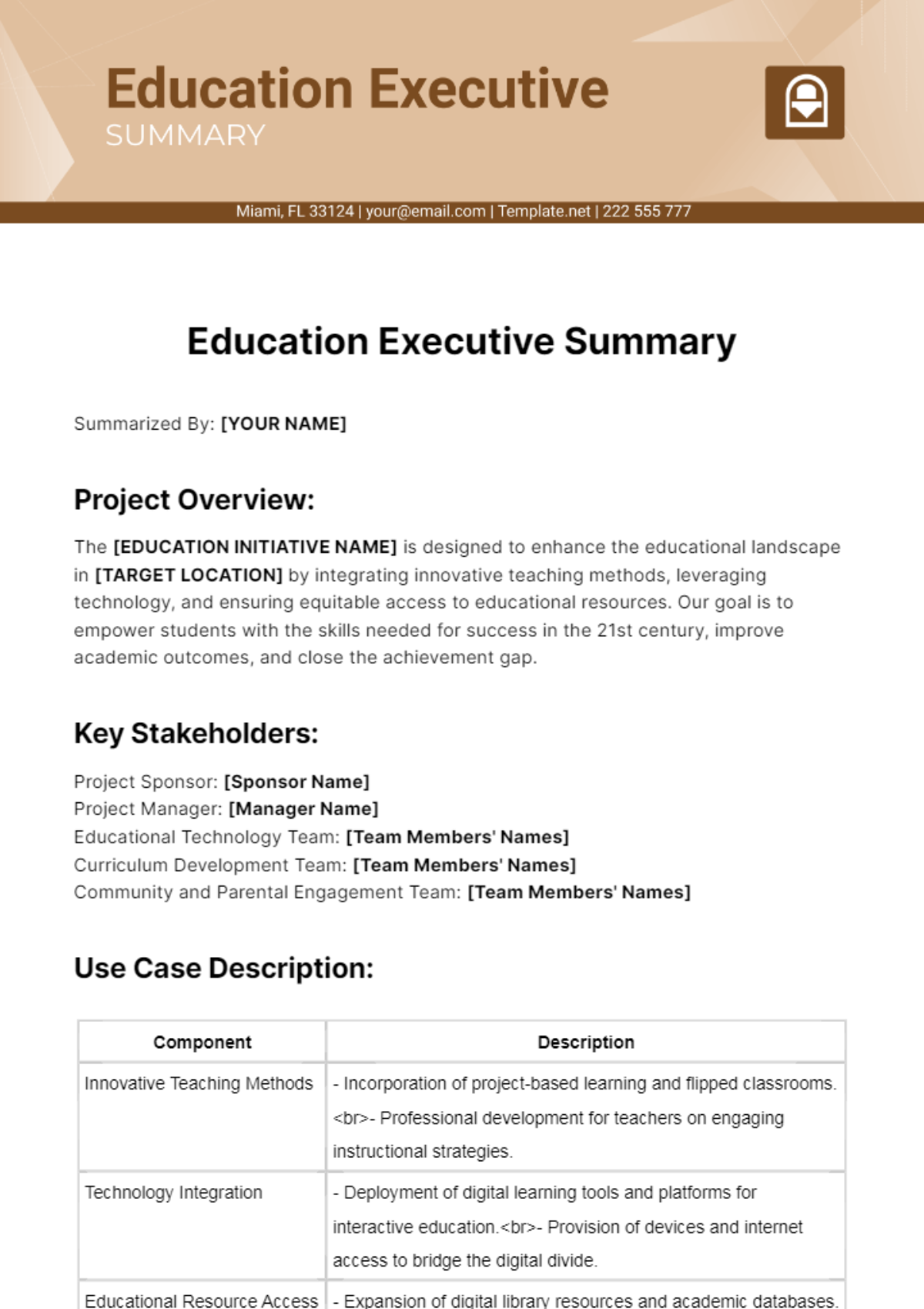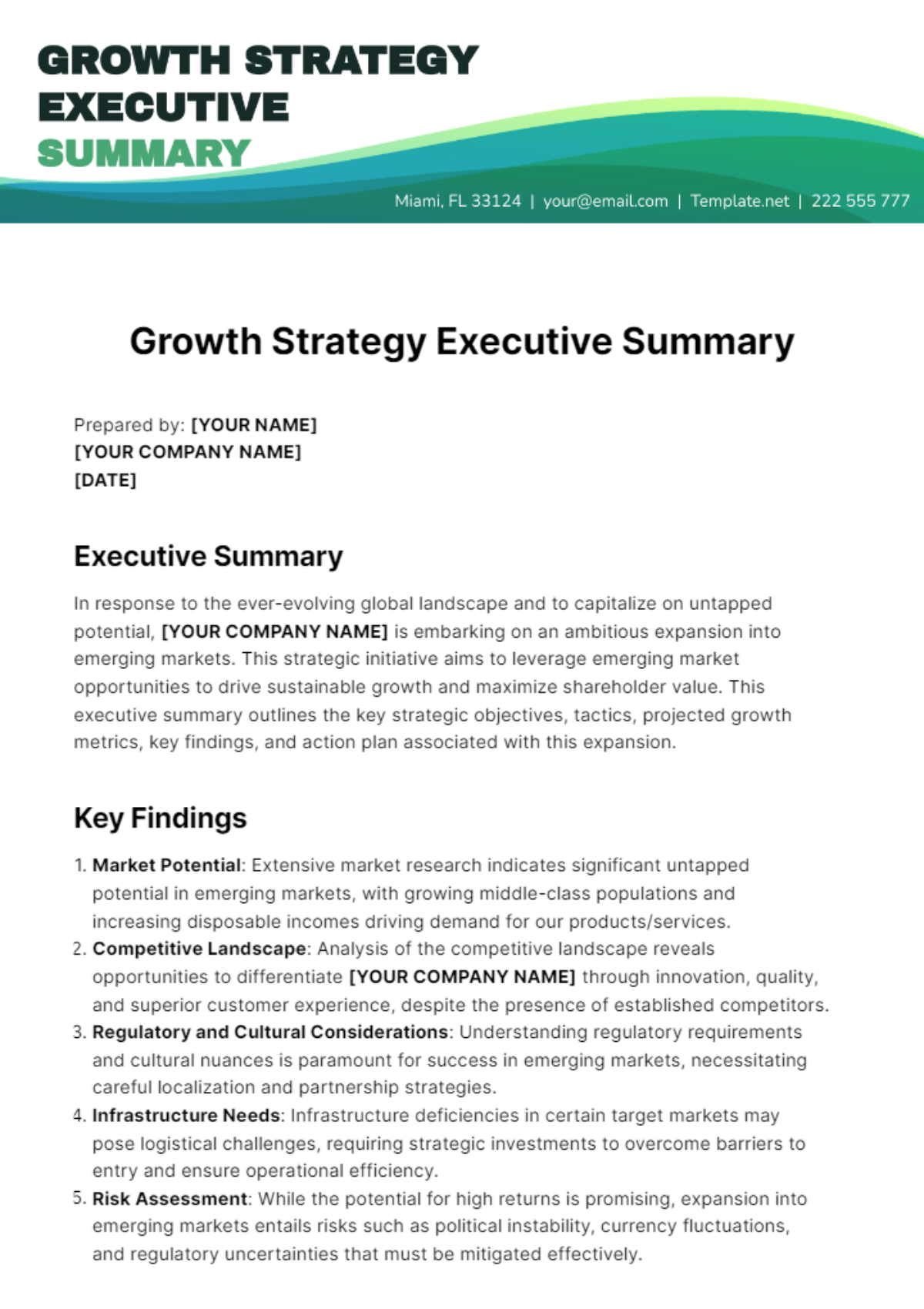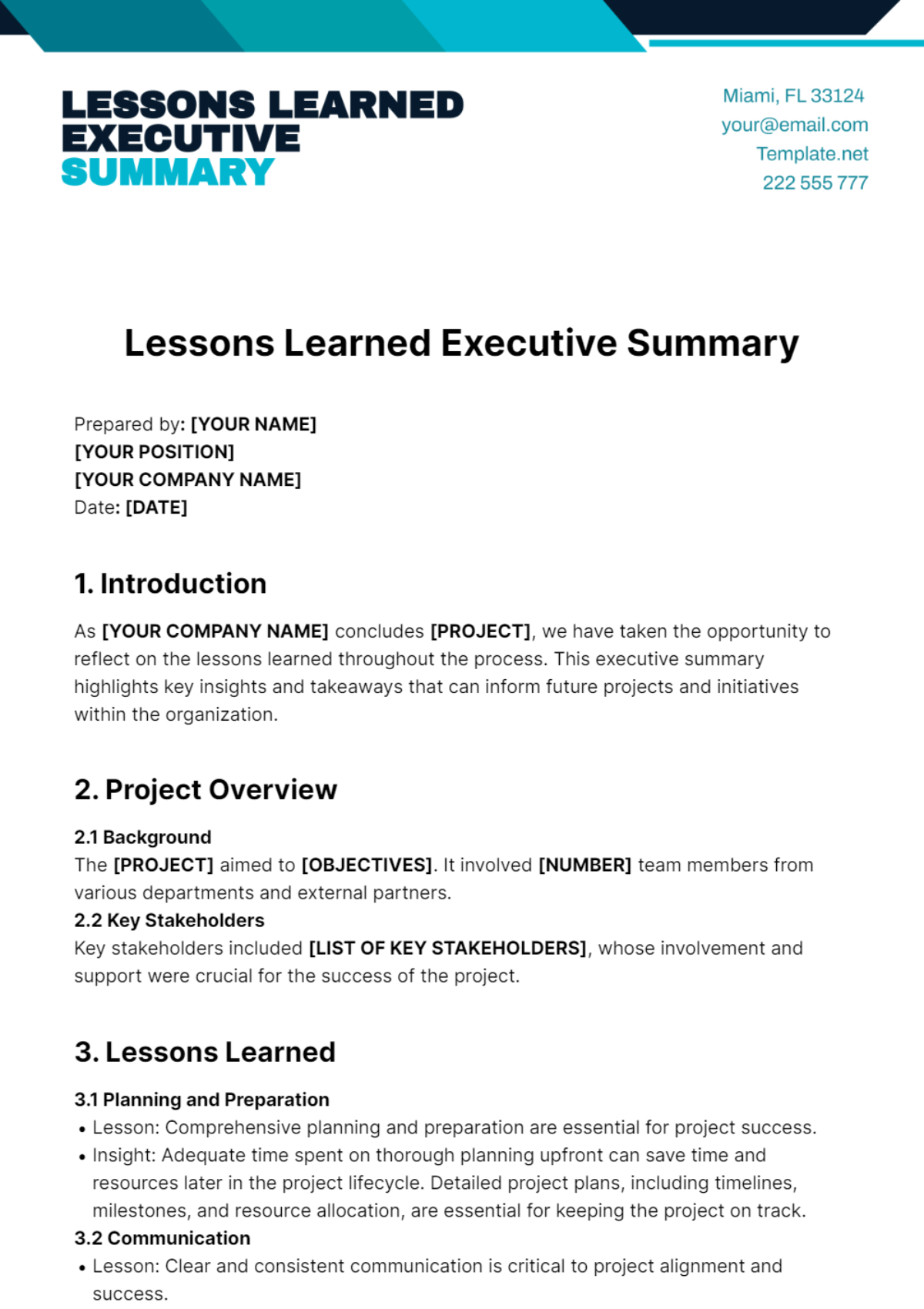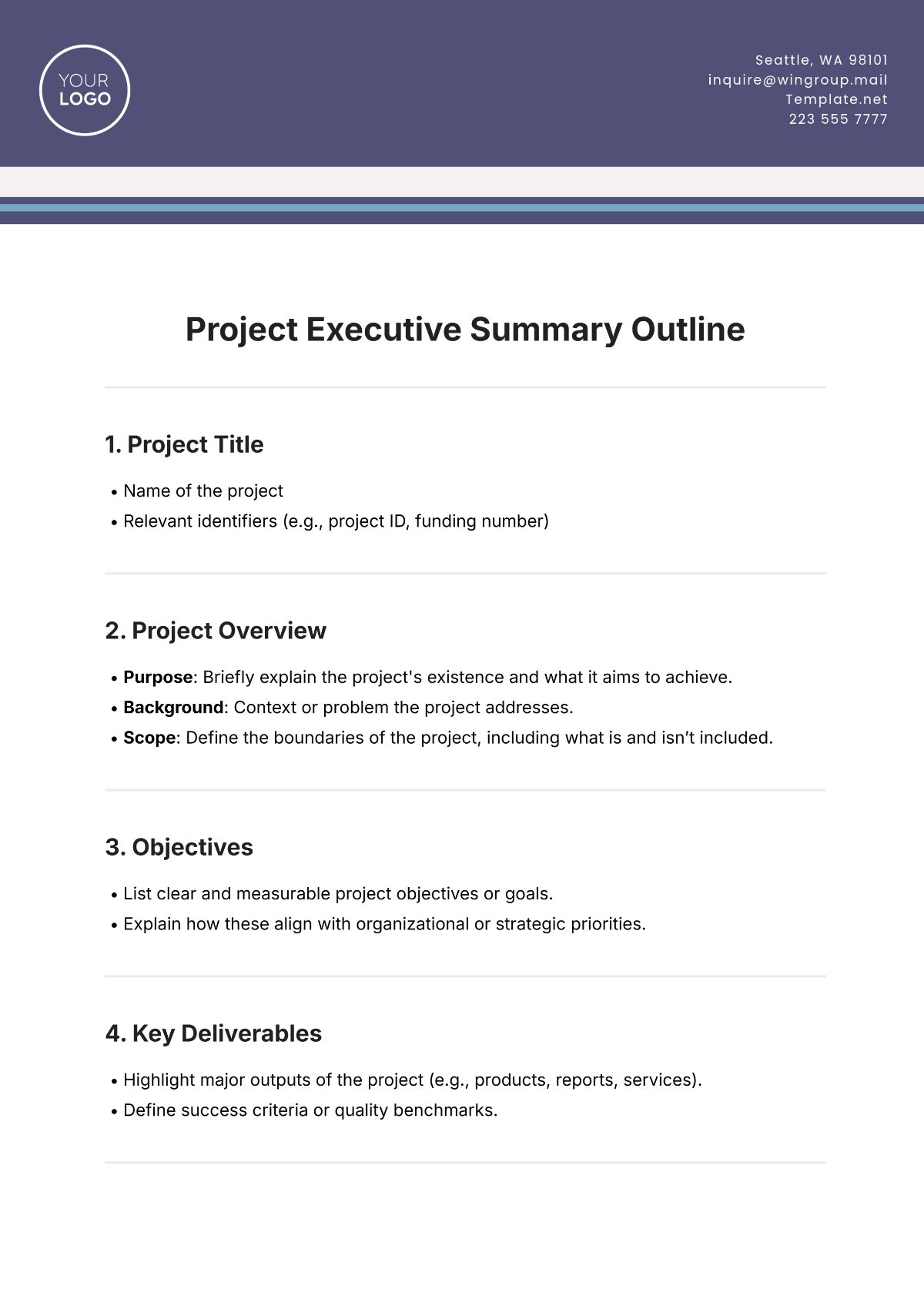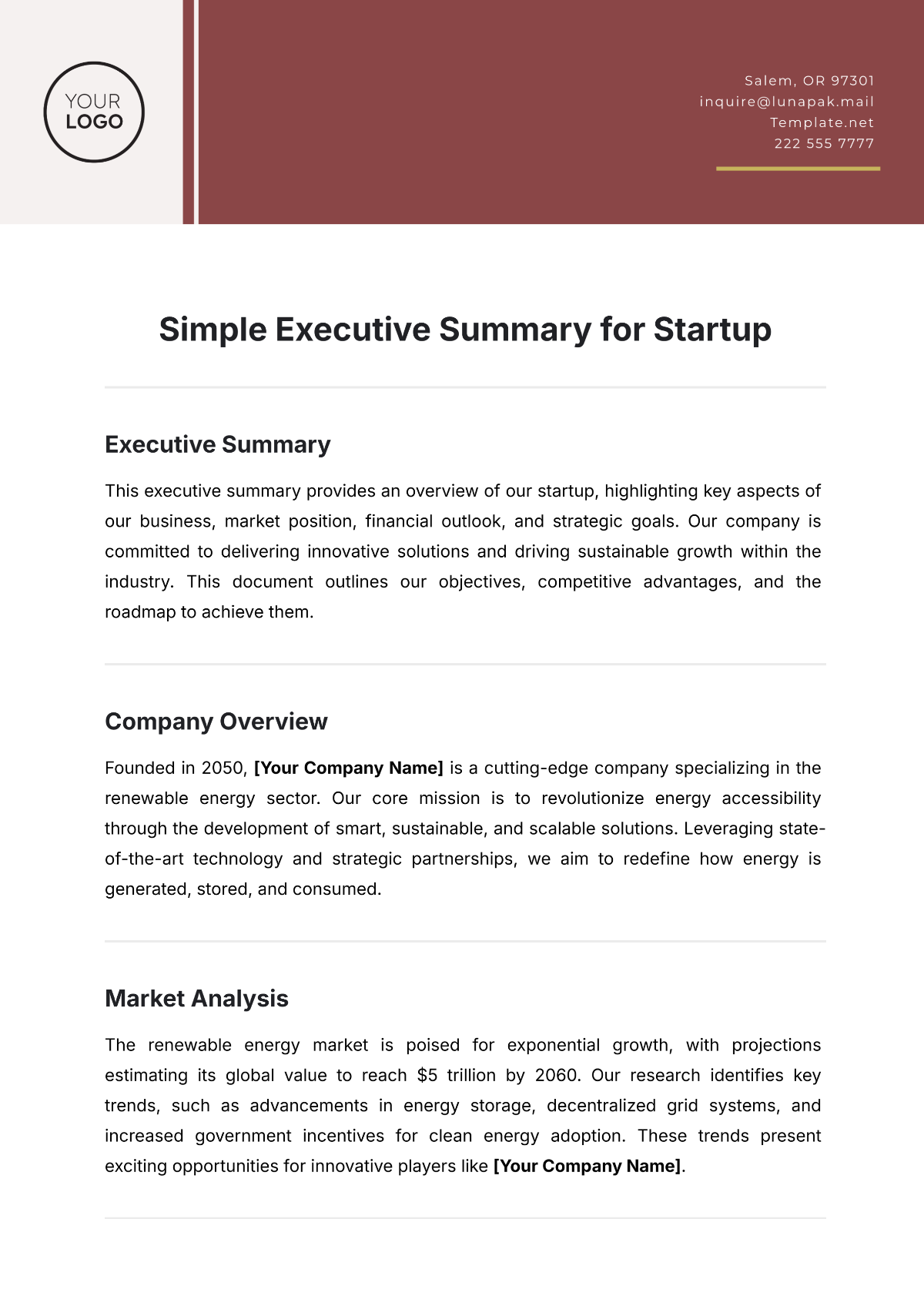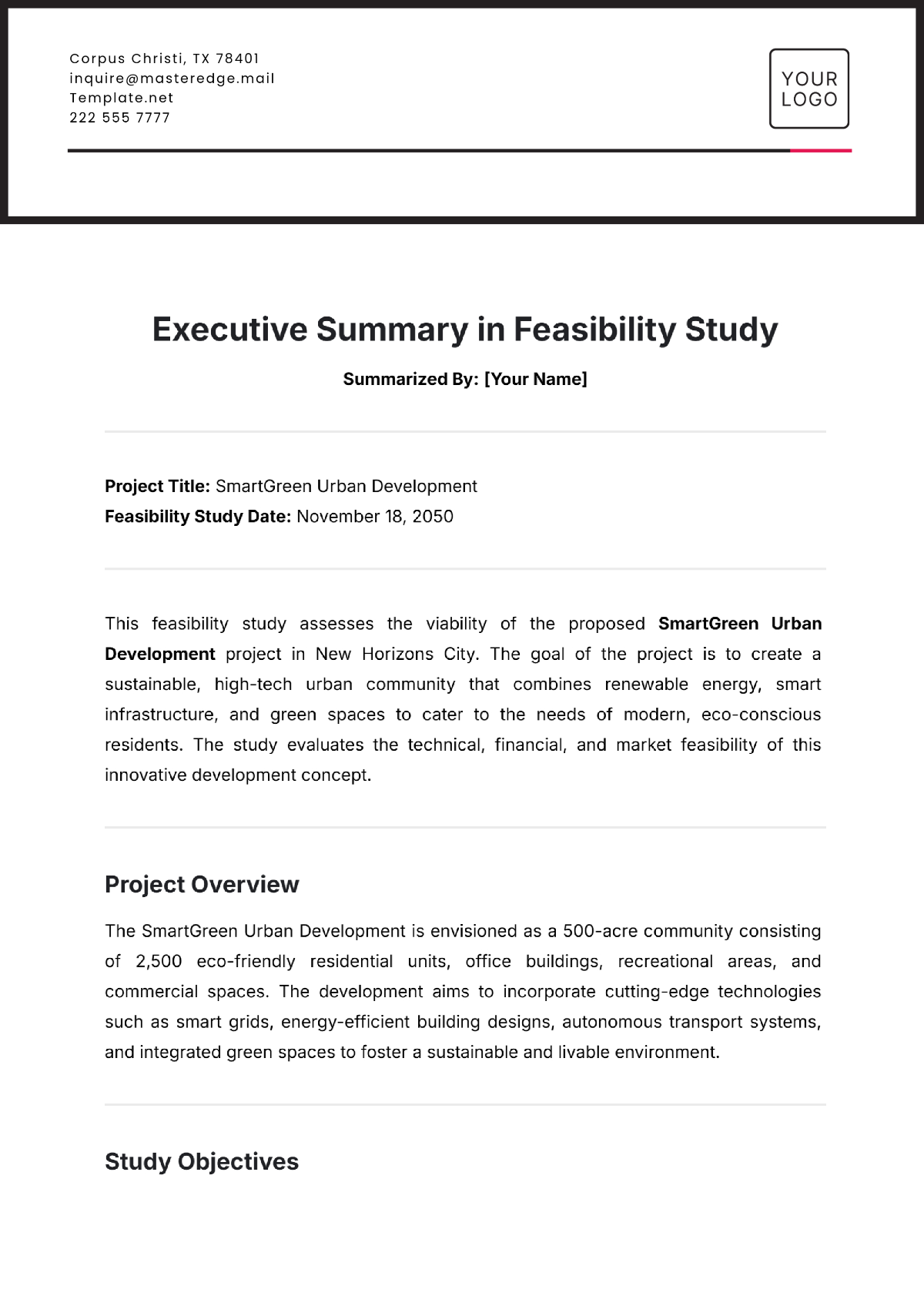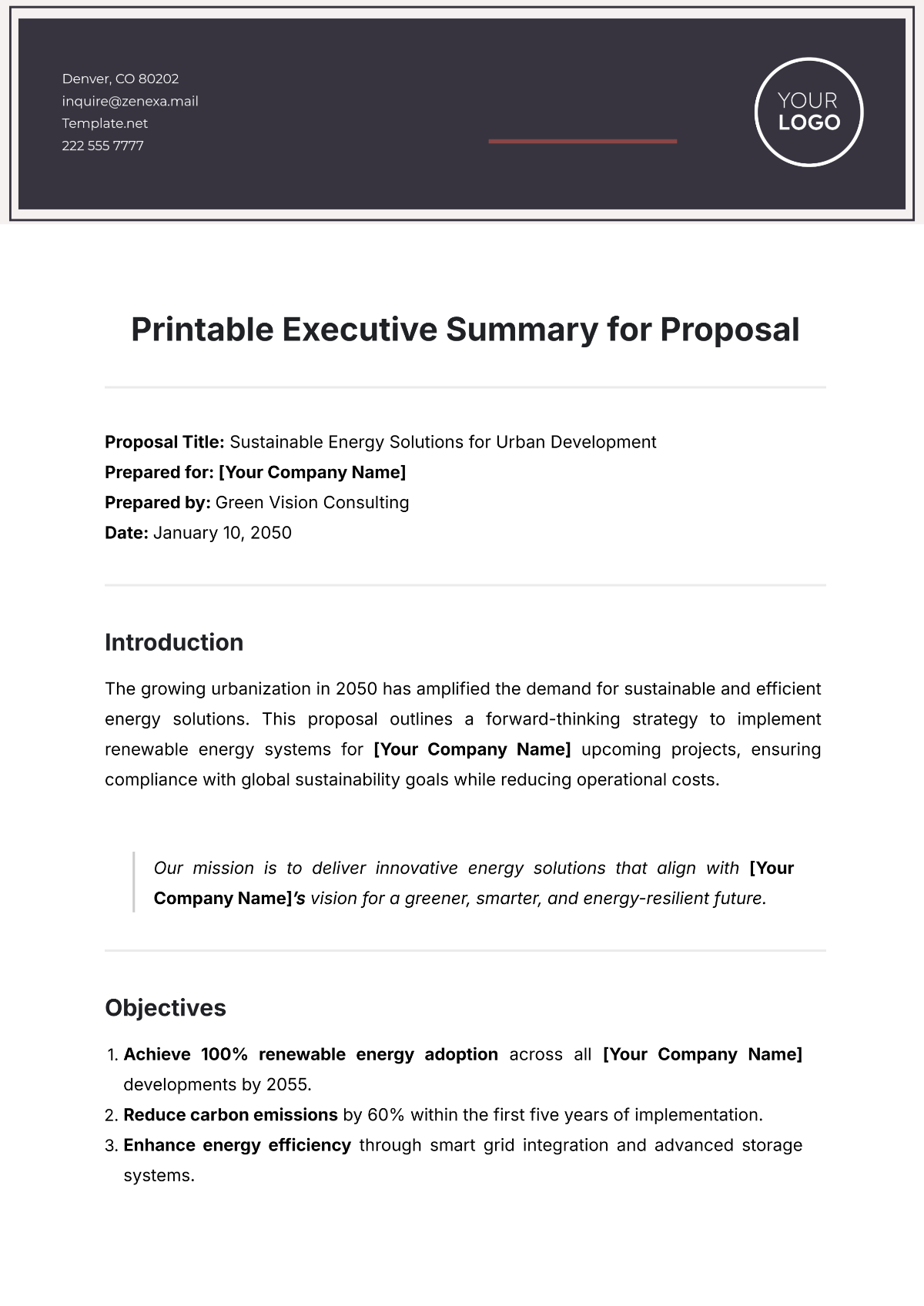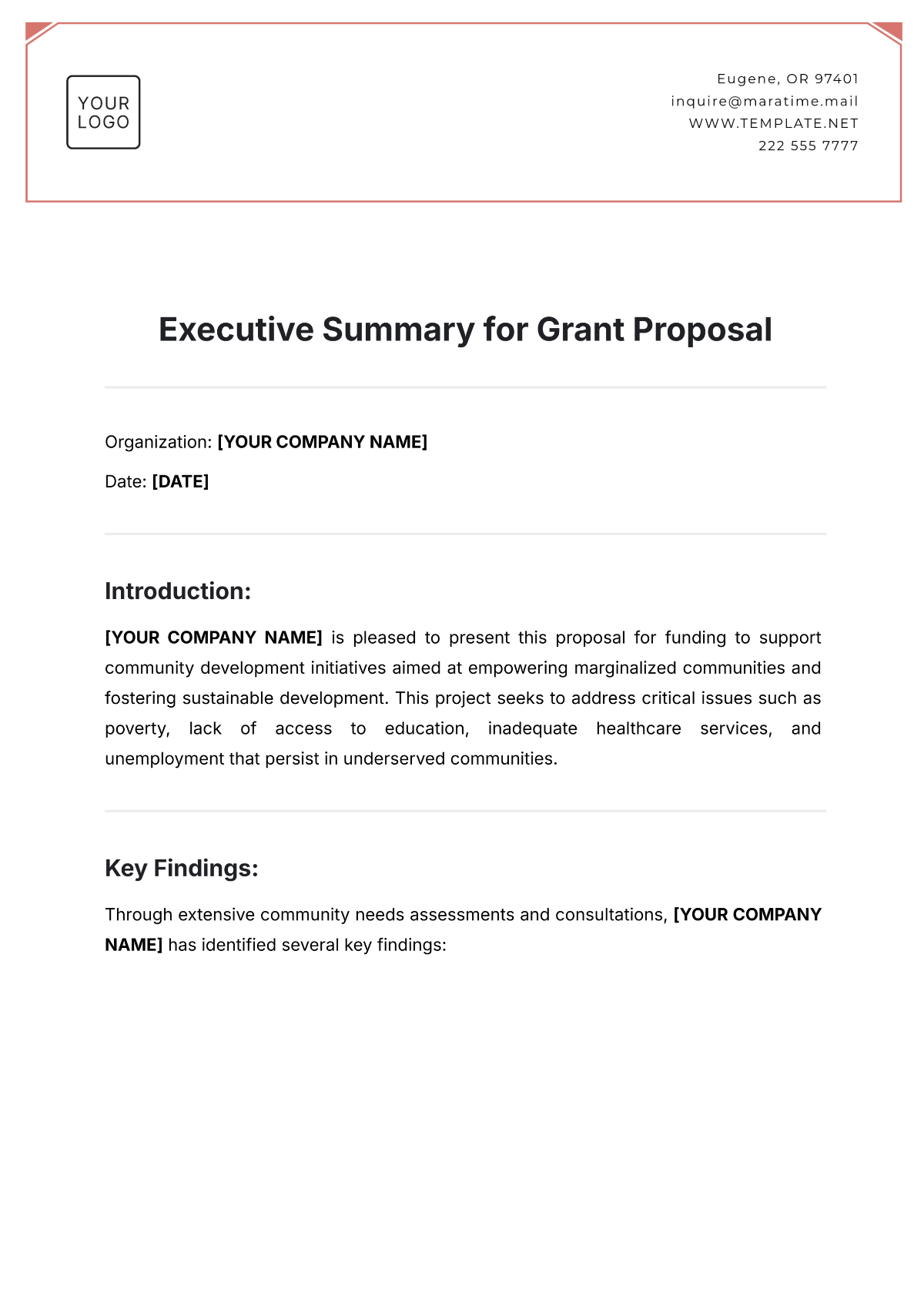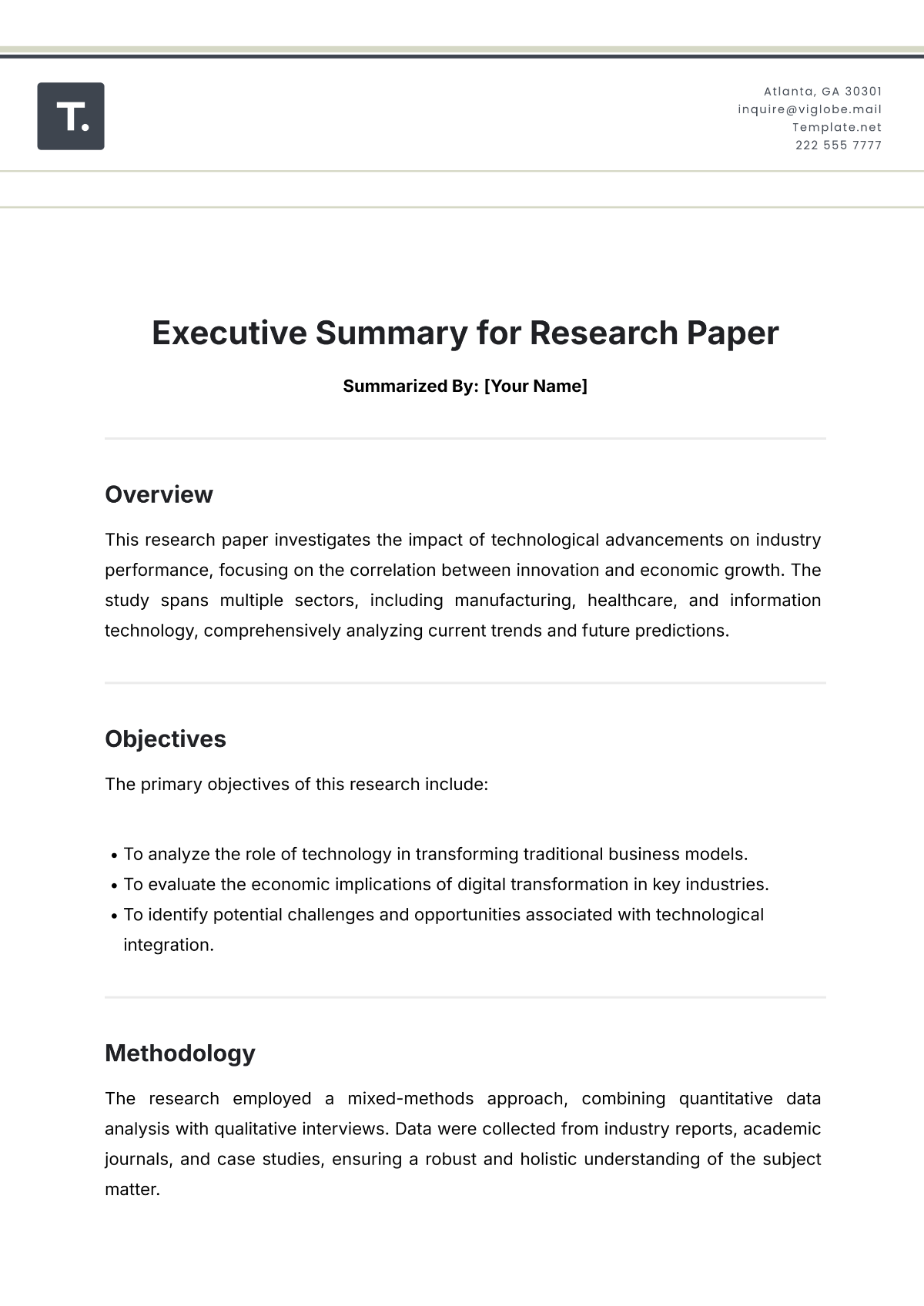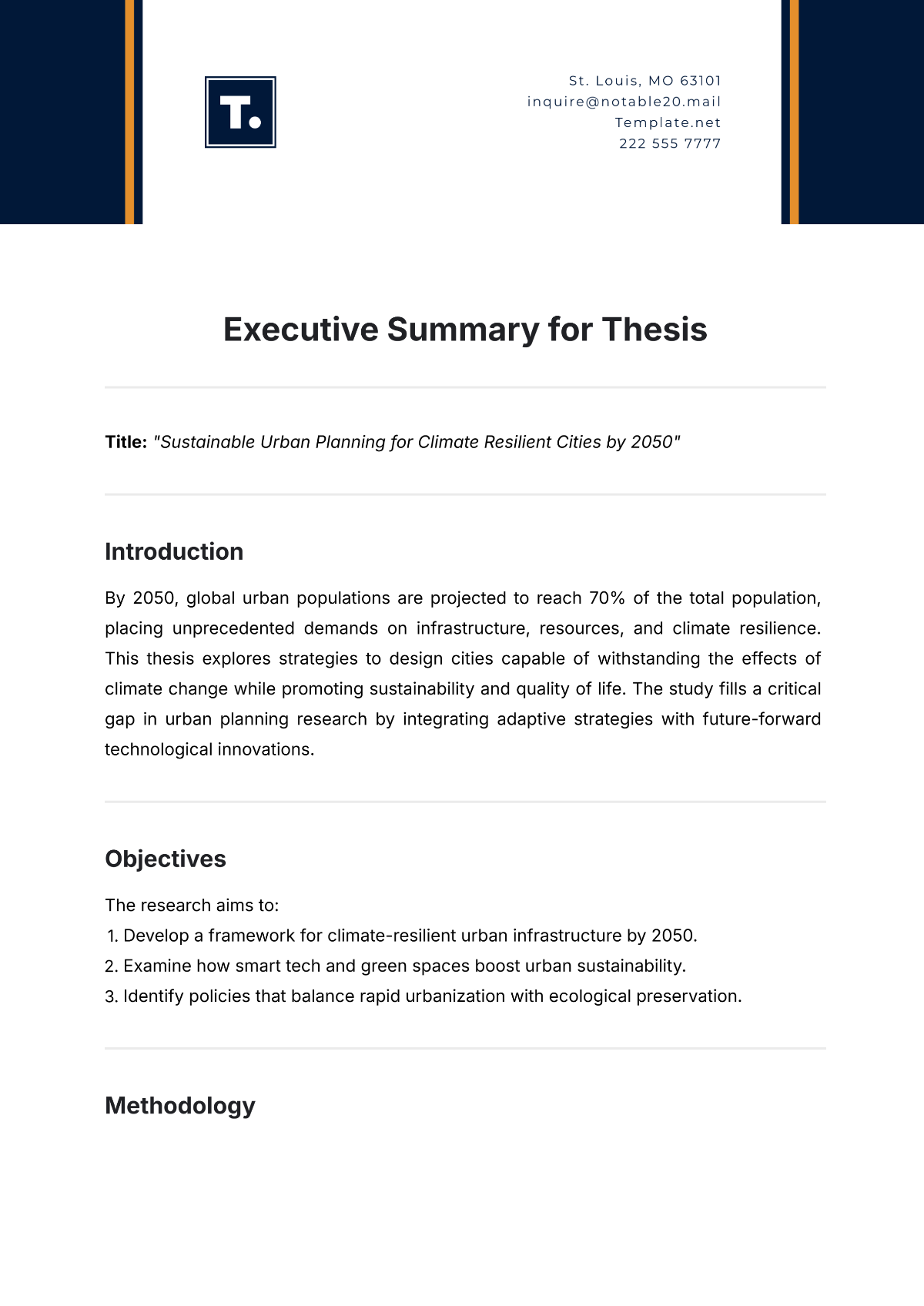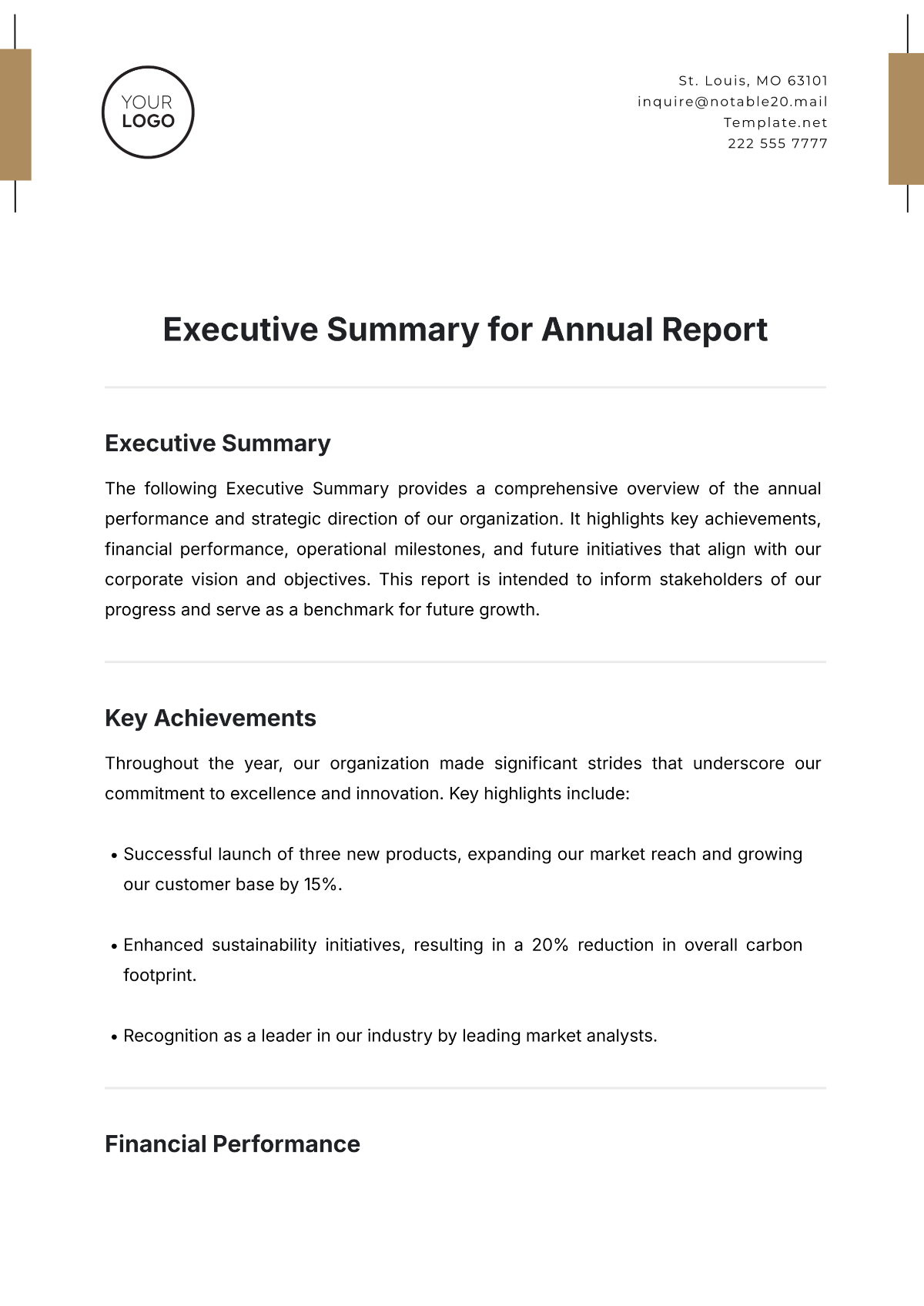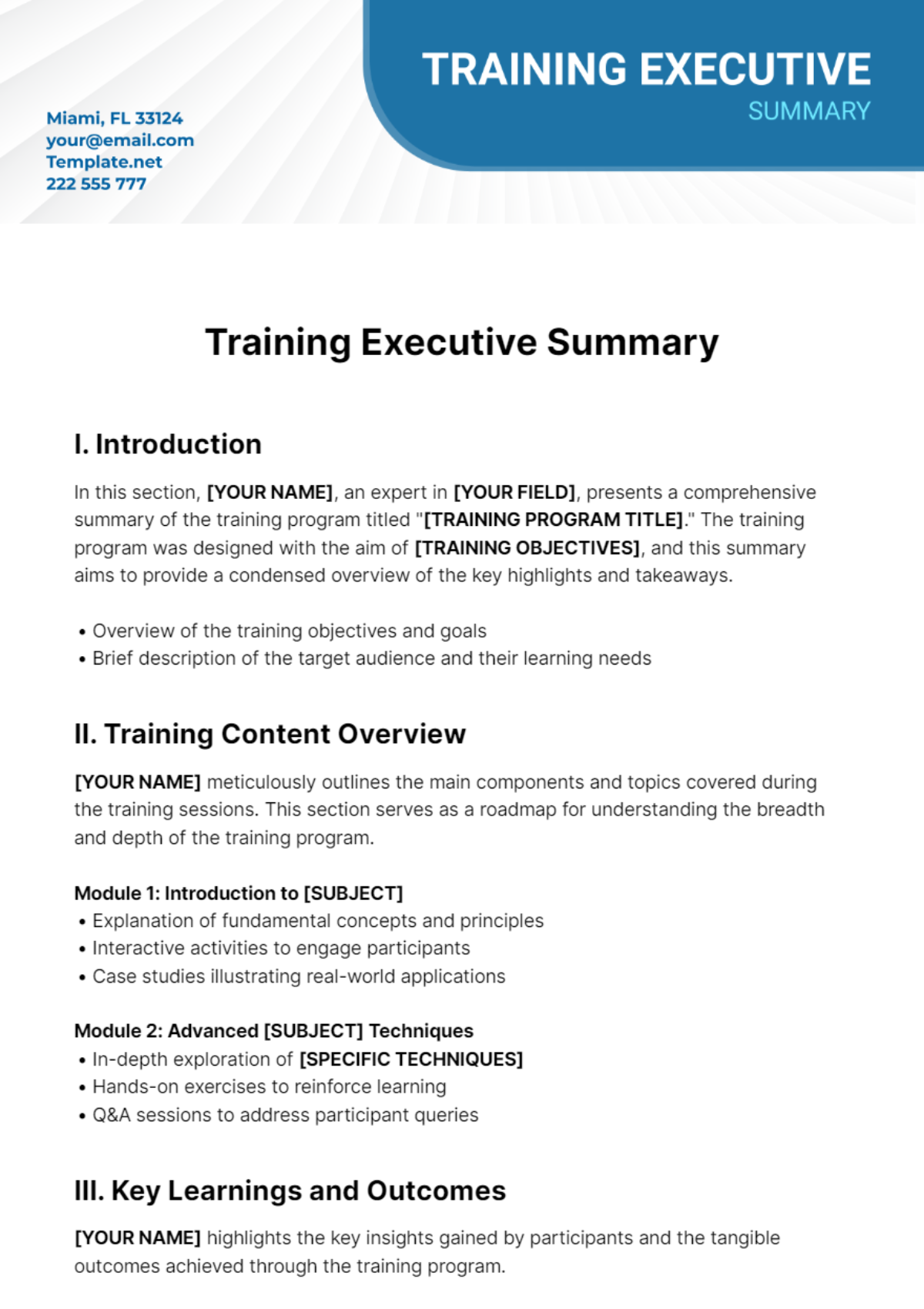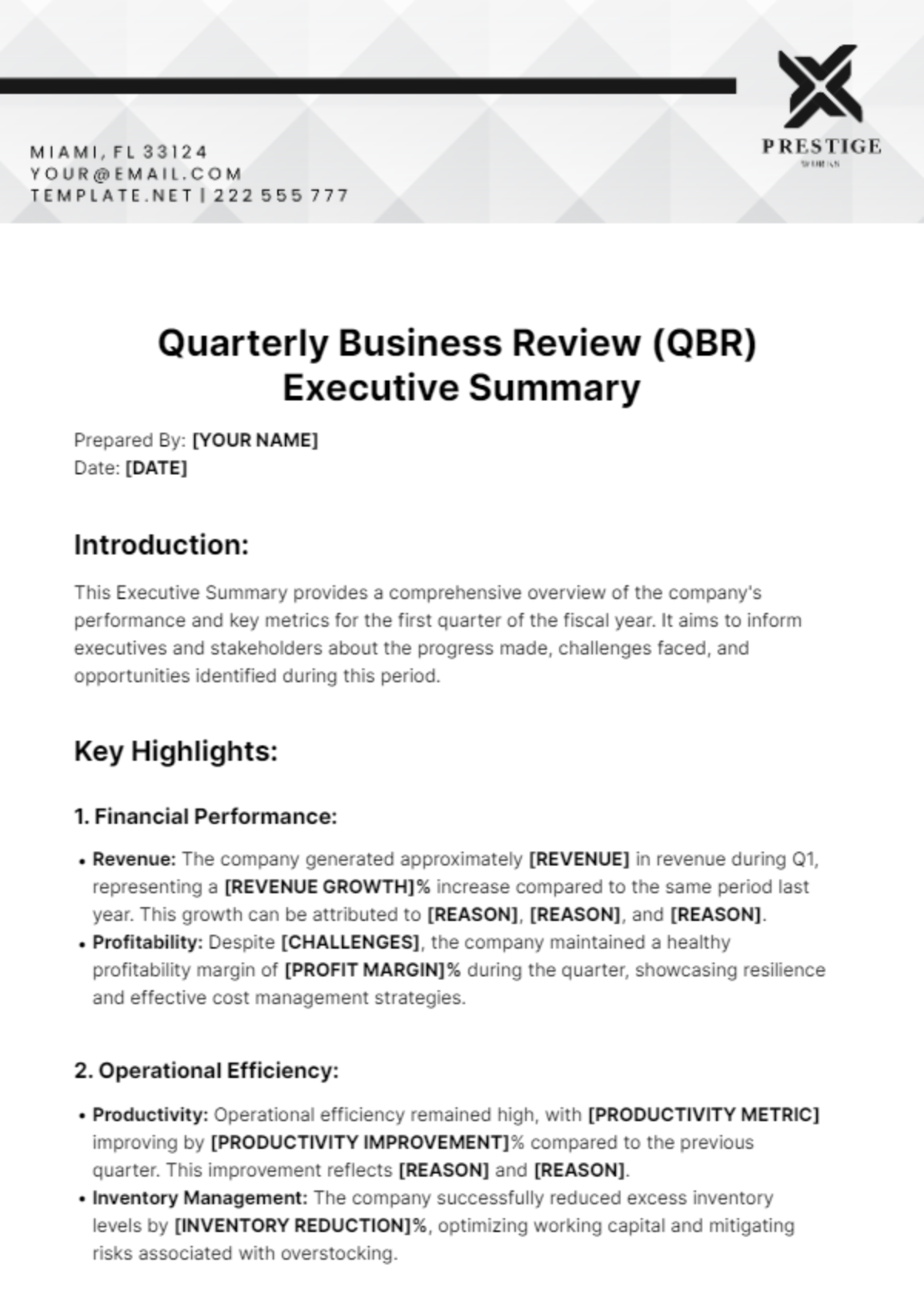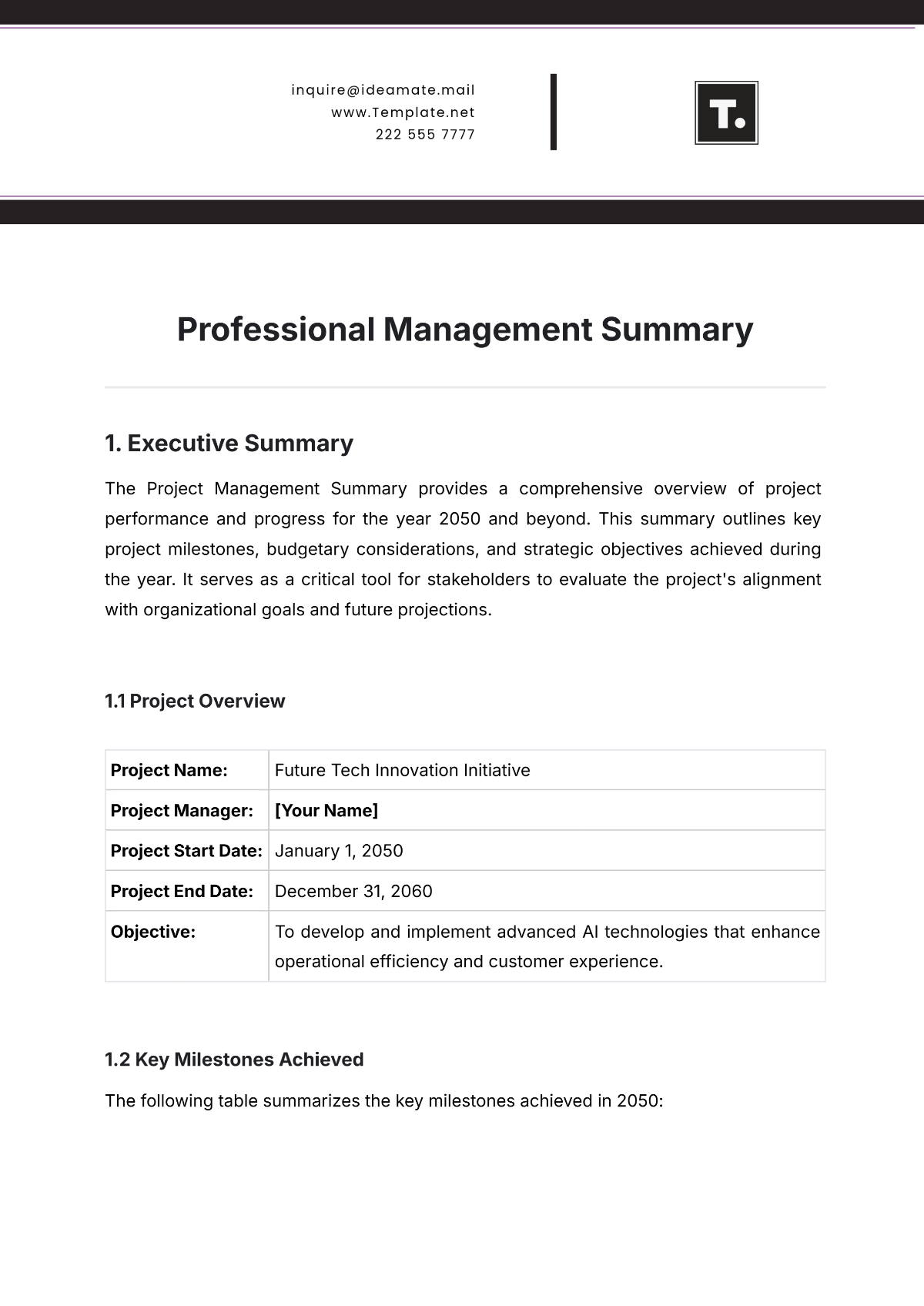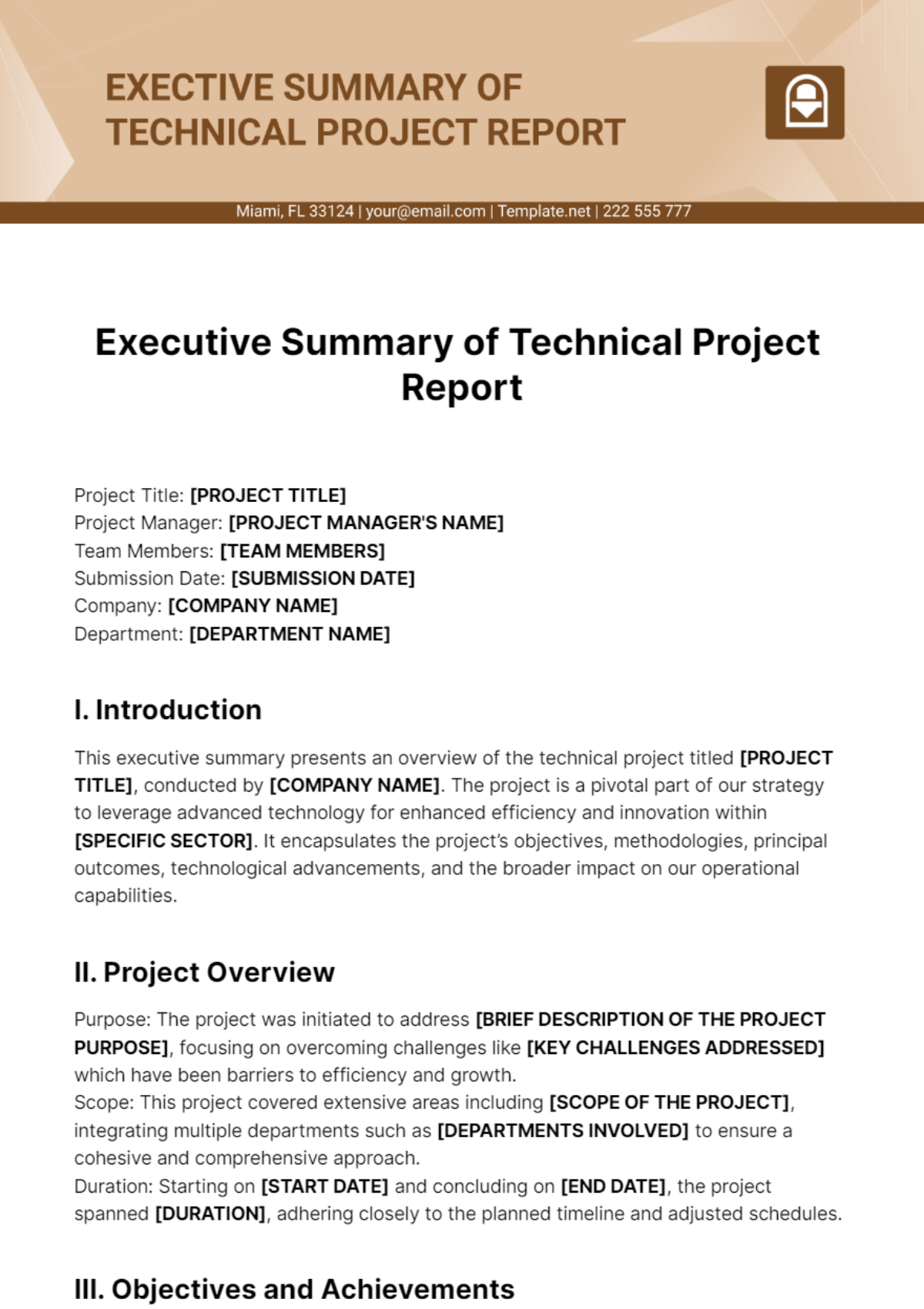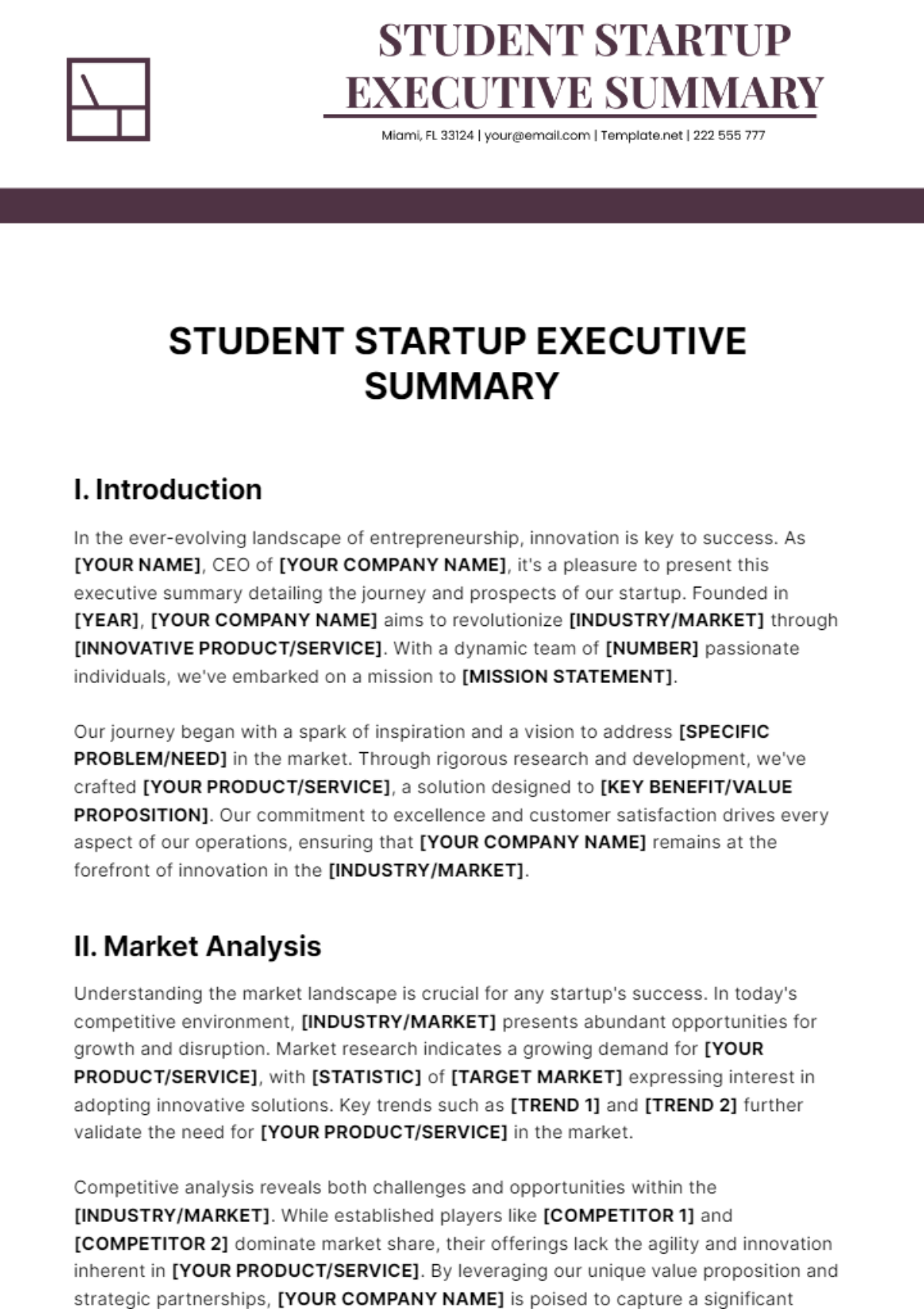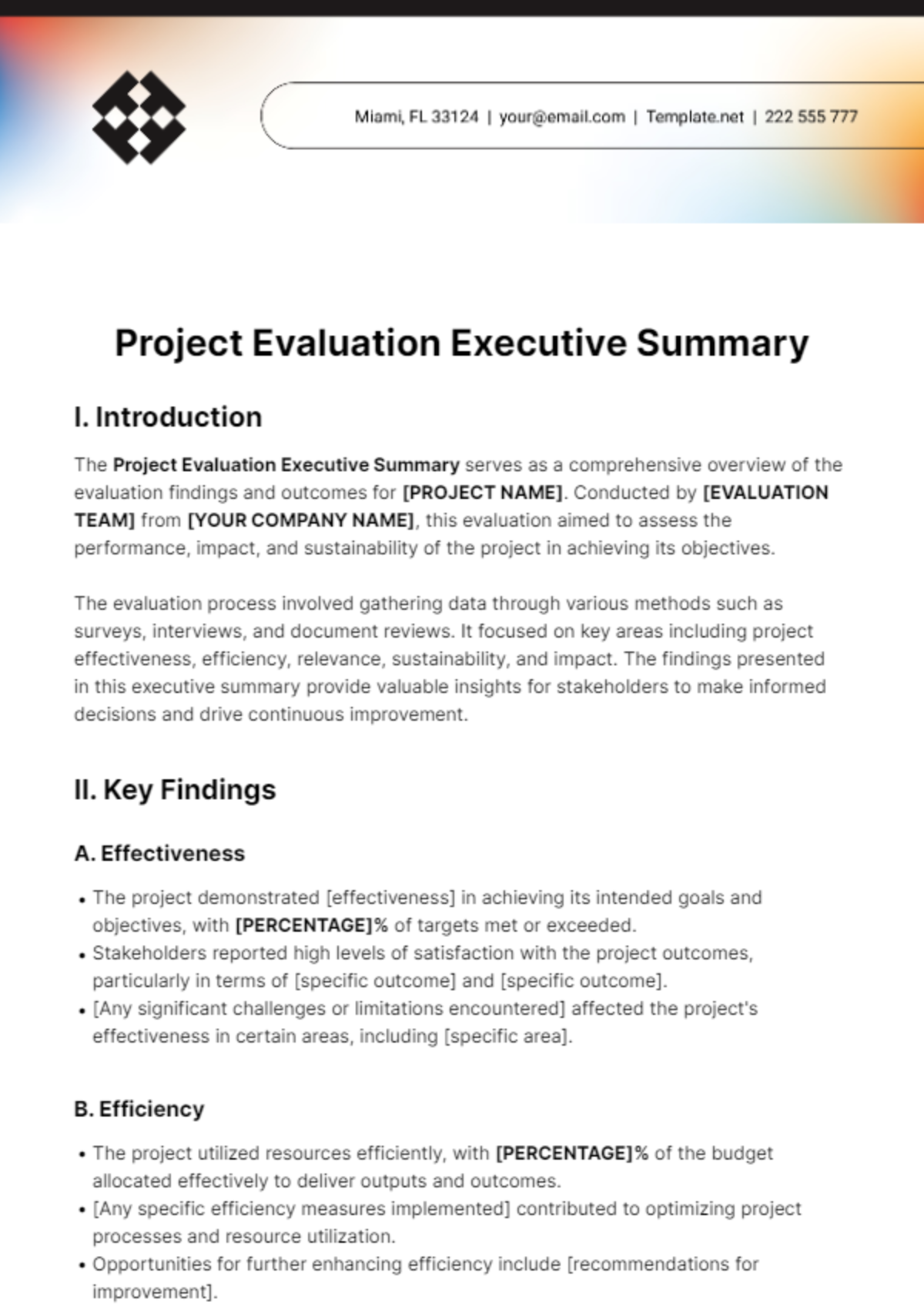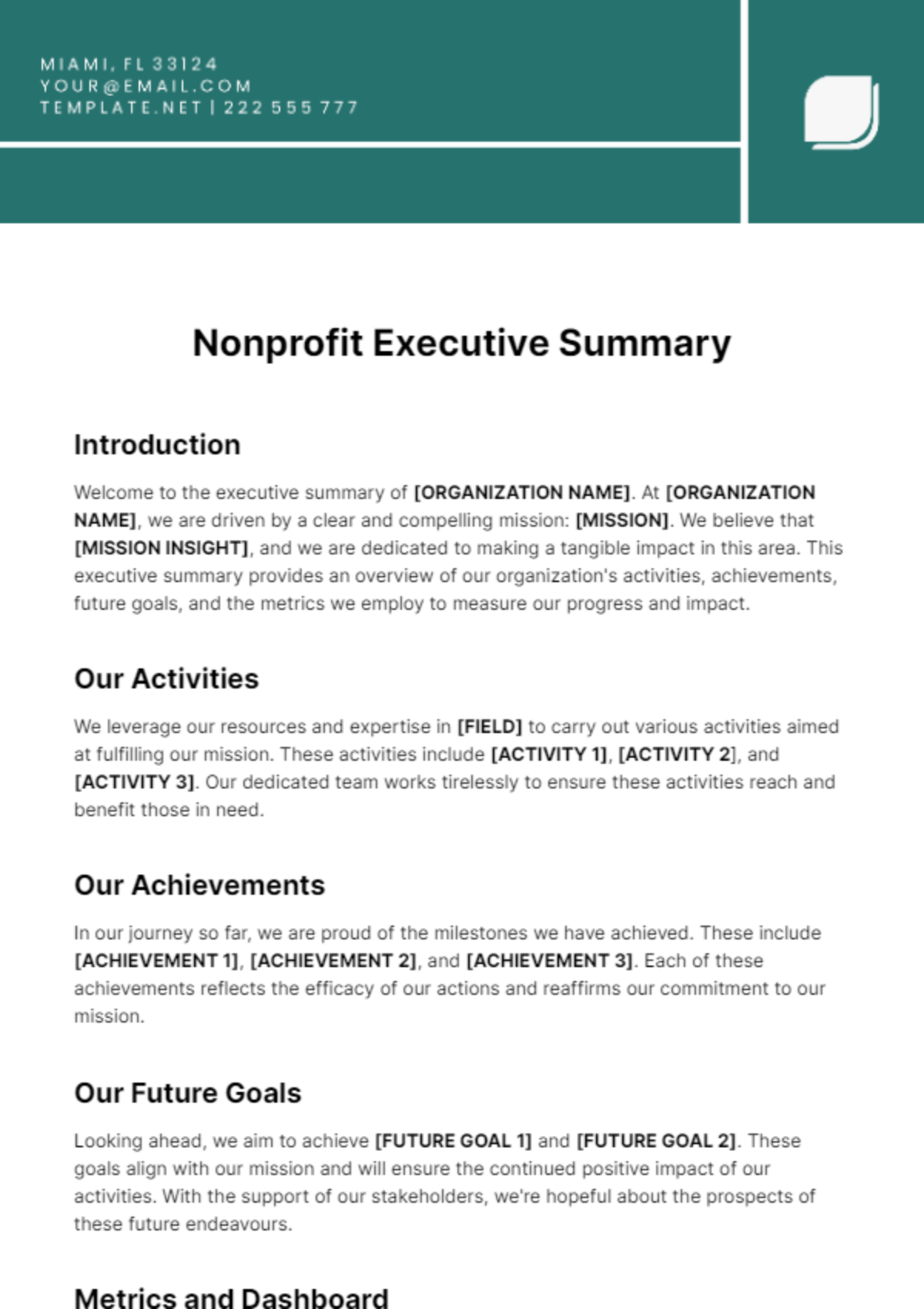Executive Summary For School Project
Prepared by:
Name: [YOUR NAME] | Position: [YOUR POSITION] |
|---|---|
Company/School: [YOUR SCHOOL NAME] | Date: [DATE] |
Introduction:
In response to the pressing need for environmental sustainability, [YOUR SCHOOL NAME] proposes the implementation of a comprehensive recycling program. This executive summary provides a succinct overview of the project, outlining its objectives, strategies, and expected outcomes in promoting environmental consciousness and responsibility within our school community.
Background and Rationale:
The decision to initiate a school recycling program stems from the recognition of our collective responsibility to mitigate environmental degradation and promote sustainable practices. With the growing concern over waste generation and its detrimental impact on the ecosystem, [YOUR SCHOOL NAME] seeks to take proactive measures to address these challenges. By implementing a recycling program, we aim to:
Reduce Waste: Minimize the volume of waste sent to landfills by diverting recyclable materials towards environmentally-friendly disposal methods.
Educate and Empower: Educate students, educators, and stakeholders about the importance of recycling and environmental stewardship, empowering them to make informed choices and adopt sustainable habits.
Foster Community Engagement: Engage the entire school community in collaborative efforts towards environmental conservation, fostering a sense of shared responsibility and ownership over our ecological footprint.
Key Findings:
After conducting a thorough assessment of waste management practices within [YOUR SCHOOL NAME], the following key findings were identified:
Current Waste Generation: On average, [YOUR SCHOOL NAME] generates [X] tons of waste per academic year, with a significant portion being non-recyclable materials.
Lack of Recycling Infrastructure: Despite the growing awareness of environmental issues, the school currently lacks adequate recycling infrastructure, including recycling bins and designated collection points.
Limited Awareness and Engagement: Many students and staff members have limited knowledge about recycling practices and their environmental benefits, resulting in low levels of engagement in sustainable behaviors.
Objectives of the Recycling Program:
The primary objectives of the school recycling program include:
Waste Reduction: Implement strategies to reduce waste generation and promote responsible consumption habits among students and staff.
Resource Conservation: Conserve natural resources and energy by recycling materials such as paper, plastic, glass, and metal.
Environmental Education: Provide comprehensive environmental education programs to raise awareness about recycling, waste management, and sustainability.
Behavioral Change: Foster a culture of sustainability by instilling eco-conscious behaviors and attitudes among students and stakeholders.
Community Engagement: Encourage active participation and collaboration among students, educators, parents, and the local community in recycling initiatives and environmental projects.
Implementation Plan:
The successful implementation of the school recycling program will involve the following key steps:
Planning and Preparation: Conduct a thorough assessment of current waste management practices, identify opportunities for improvement, and develop a tailored recycling plan.
Infrastructure Setup: Install recycling bins, signage, and designated collection points across the school premises to facilitate the proper segregation and disposal of recyclable materials.
Education and Awareness Campaigns: Launch educational initiatives, workshops, and outreach programs to raise awareness about recycling and environmental sustainability among students and staff.
Student Involvement: Engage students through eco-clubs, green committees, and extracurricular activities to empower them as environmental leaders and change agents.
Monitoring and Evaluation: Implement a monitoring and evaluation framework to assess the effectiveness of the recycling program, track progress towards goals, and identify areas for improvement.
Expected Outcomes:
The successful implementation of the school recycling program is expected to yield the following outcomes:
Reduction in Waste: Decrease the volume of waste sent to landfills, leading to a more sustainable waste management system.
Environmental Awareness: Increase awareness and understanding of environmental issues, fostering a sense of environmental responsibility among students and stakeholders.
Behavioral Change: Encourage sustainable behaviors and habits, leading to long-term positive impacts on the environment and community.
Community Engagement: Strengthen community ties and collaboration, creating a culture of shared responsibility and commitment to environmental stewardship.
Conclusion:
In conclusion, the implementation of a school recycling program holds immense potential to promote environmental sustainability, educate future generations, and foster community engagement. By working together towards a common goal, we can create a healthier, more sustainable environment for current and future generations. Let us embark on this journey towards a greener, cleaner, and more sustainable future.



